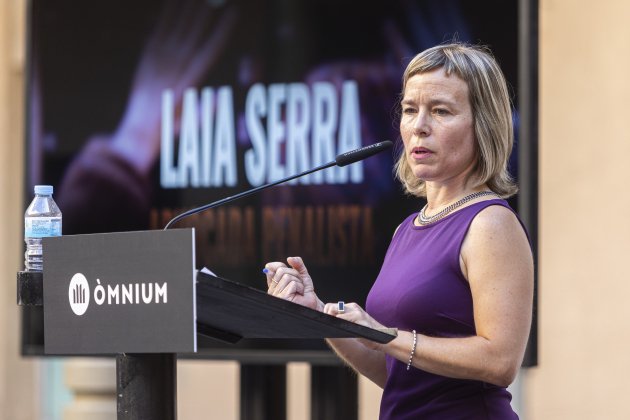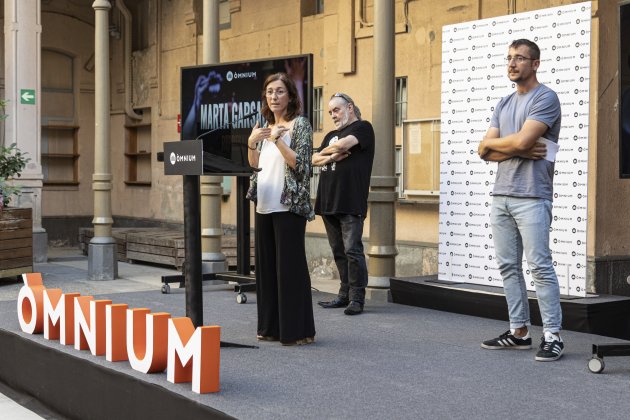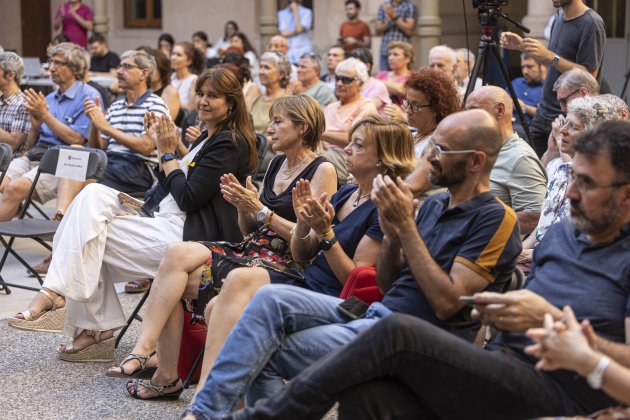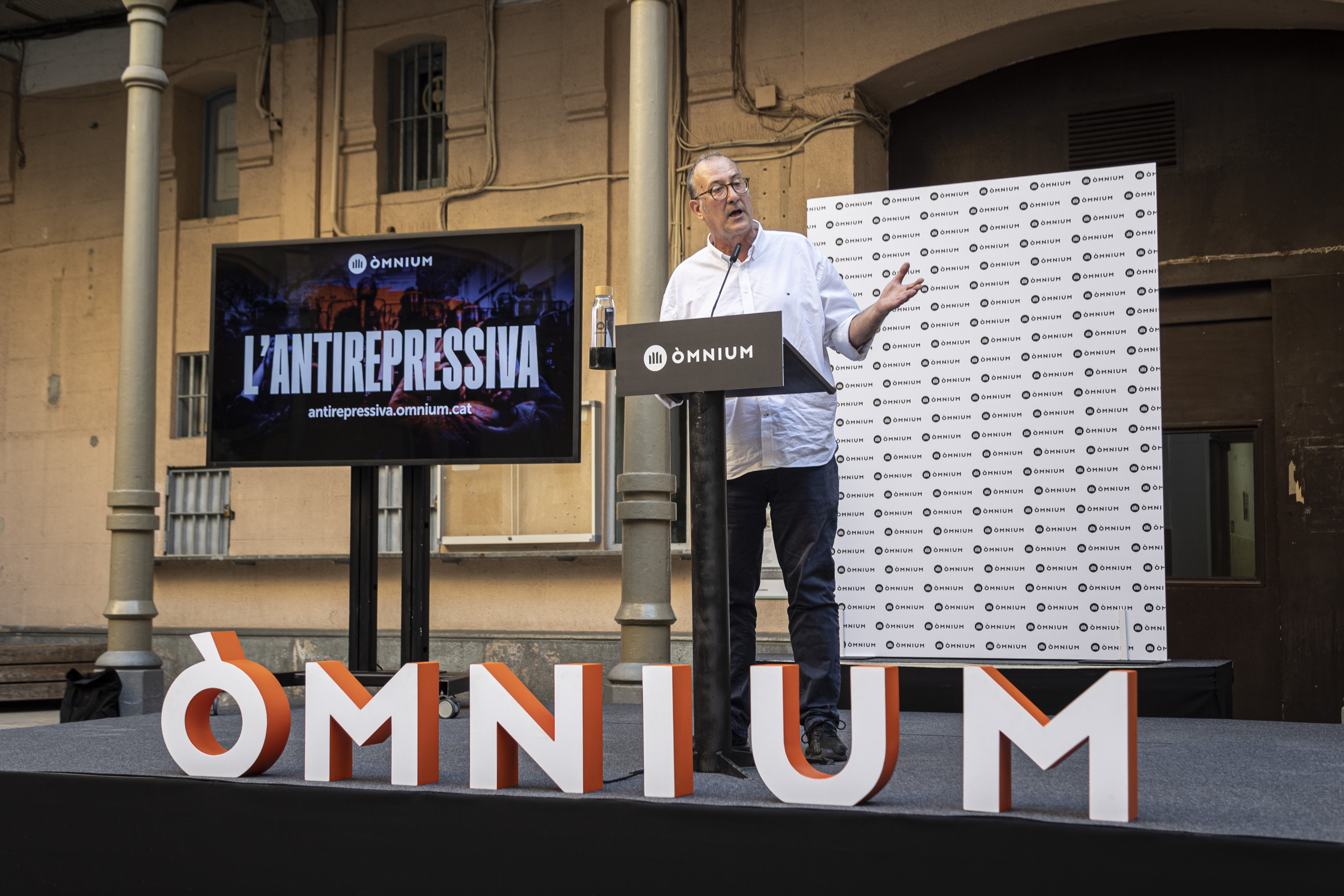4,200 people suffered reprisals by the Spanish State for defending the self-determination of Catalonia. Xavier Antich, president of Òmnium Cultural, a major pro-independence Catalan cultural group, announced this Thursday afternoon that the 2,850 victims of reprisal since 2017, which they announced two years ago, have increased to over 4,000 at present, and that they will spread it internationally through a digital map, under the name of the Antirepresentativa. "We have to show the repression of the Spanish State to the world because it is responsible for the violation of rights, from the executive and legislative powers, the police and the media," denounced Antich, who added: "They want us to mourn and stay at home; but we take pride in it and show our antirepressive solidarity".
The presentation of this new tool against repression was made in the courtyard of Barcelona's Model prison, where Antich detailed that of the 4,200 victims of reprisal: 1,639 are victims of police brutality; 1,432 people were investigated in criminal proceedings, 1,200 people were affected by administrative accounting processes, without forgetting "the 65 people spied on by the Spanish State" through the Pegasus software, among which Òmnium —according to Antich— includes the Catalan president of the Parliament, Laura Borràs, who attended the event, after it was made public that the prosecution asks for 6 years in prison and 21 years of disqualification to public office for the Institute of Catalan Letters contract splitting case, and after her intervention at Junts, in which she refused to resign. Upon her arrival, Borràs embraced her predecessor, Carme Forcadell, and at the act's ending she was also greeted by Antich.
Avui surt a la llum l'Antirepressiva❗
— Òmnium Cultural (@omnium) July 14, 2022
L'Estat espanyol no ha aturat la repressió i ja acumula 4.200 persones perseguides per defensar l'autodeterminació i la independència 💥
📲 Creem un nou espai digital de documentació i denúncia: https://t.co/T1UsCQRmZ0 pic.twitter.com/lyXXK8FPlO
"Challenging the apparatus"
Criminal lawyer Laia Serra began the act with some reflections on "how to challenge the whole apparatus" of repression, which "begins with the police and has political purposes". She explained the application of "legal innovations", such as "banning protesters from attending public events", which was imposed as a precautionary measure to young people arrested in the protests against the pro-independence leaders' sentence by the Spanish Supreme Court, in October 2019. "In 2021 a new stage has opened with the emergence of support groups and constants" against repressed people, indicated Serra, as well as the first resolutions of Barcelona's and Girona's National Audience courts, and the appeals chamber of Catalonia High Court (TSJC) that are "speaking out" and overturning the charges of attacking authorities and public disorder, which she did not forget to point out are processes initiated with "the endorsement of police attestations", and changes to the Criminal Code, "approved by the political parties". For Serra, "the new challenge for activism will be to combat repression in new technologies".

The victims of reprisal's testimony
Marta Garsaball, Jou Carmelo and Òscar Campos gave their testimony of the reprisals experienced. Marta Garsaball has explained she is one of the people investigated and now prosecuted for organizing the October 1st referendum, when she was the director of services of the Catalan ministry of External Affairs, in a case initiated by the court of instruction 13 of Barcelona in secret, back in 2017. "It's like Kafka's The process. First, I denied everything. Then, when I saw the crimes and the possible prison sentences, I got scared. The lawyer didn't know what would happen.... and finally I decided to assume that I am a victim of reprisal", confessed Garsaball. Her case, like that of the rest of the thirty or so defendants, is still pending trial, five years after their arrests and interrogations.

Jou Carmelo, ironically assured: "Our police and our government also persecutes us for demonstrating" and denounced that in his case, like that of other demonstrators, the Mossos de Esquadra Catalan police identified him for participating in other protests and saving videos. "They have folders about us, and the in the last case they accuse me of going to a town I have not even set foot in," he said.
Òscar Campos, from Girona, also detailed that he and his companions, Lluís, Sandra and Berta, are being asked to serve 4 years in prison each and pay 62,000 euros for a 2018 Girona protest on the October 1st referendum anniversary. Campos also denounced "the attestations made by the information brigade of the Mossos" and called for unity, "without electoral motives" and that "let it be true that when they judge one of us, they judge us all".

The president of Òmnium closed the act, assuring that the cultural entity, in addition to defending the Catalan language, "has to denounce the repression of the Spanish State to the world". "Òmnium shows its antirepressive solidarity, sharing strategic and mobilization fronts", concluded Xavier Antich.

